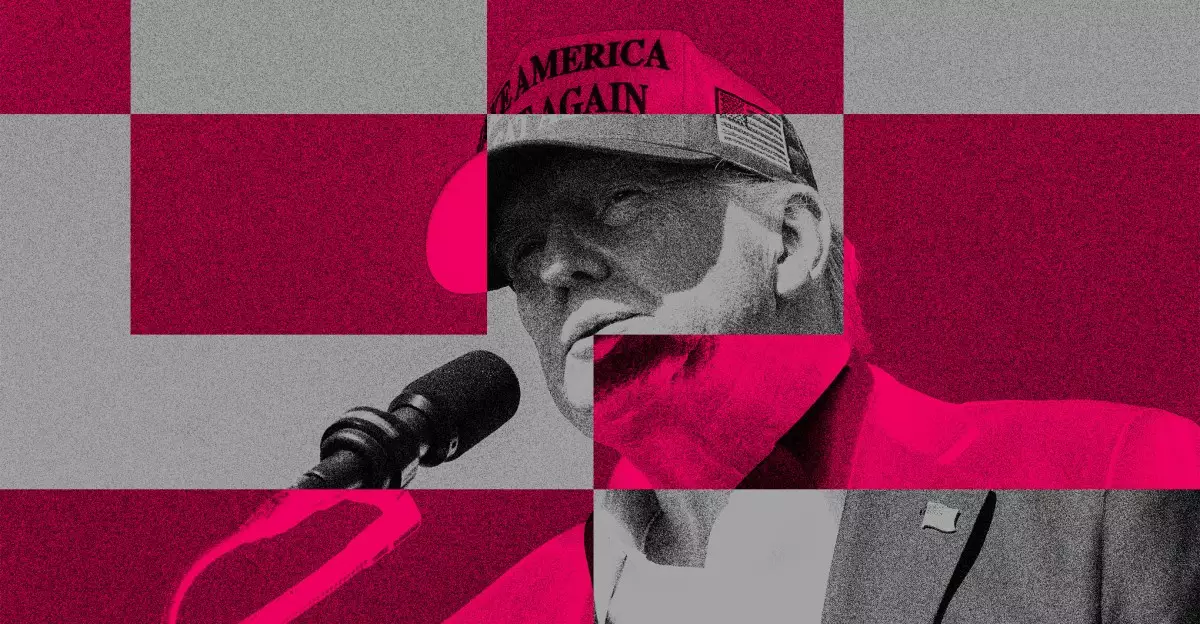In an era where digital dominance is as much about political power as it is about innovative technology, the Trump administration’s recent moves on TikTok reveal a complex web of contradictions and strategic maneuvering. Despite openly contemplating banning TikTok over national security concerns—primarily around ByteDance’s alleged data-sharing with China—officials have paradoxically begun engaging with the platform on its terms. The creation of a White House TikTok account is not just a publicity stunt; it’s a reflection of how political actors are increasingly maneuvering within the digital sphere, even as they publicly threaten to shut down genomic giants like TikTok altogether.
The administration’s approach seems half-hearted and contradictory. On one hand, they consider TikTok a security threat that needs to be eradicated; on the other, they recognize the platform’s unparalleled mobilization power, especially among younger voters. It’s this ambiguous stance that exposes a deeper strategy: leverage TikTok’s reach to influence public opinion and political narratives while ostensibly working to dismantle the platform from a national security perspective. This cognitive dissonance hints at a broader failure of American policy—an inability to reconcile economic interests, electoral strategy, and security concerns into a coherent stance.
The Political Rhetoric Versus Digital Realities
President Trump’s fluctuating stance on TikTok underscores the larger game of public spectacle versus strategic interests. Initially, during his tenure, there was a hard push to ban TikTok, viewing it as a Chinese espionage tool. This was rooted in genuine concerns over user data and national security, but it was also undeniably intertwined with the tense U.S.-China geopolitical climate. However, as the 2024 election cycle loomed, the political calculus shifted dramatically. Suddenly,TikTok was no longer just a threat; it became a tool to energize Trump supporters and bolster his online presence.
The election campaign’s aggressive use of TikTok, especially through @TeamTrump, demonstrated a savvy understanding that the platform’s primary function isn’t just news dissemination—it’s entertainment, viral content, and emotional engagement. While Democrats struggled to match the platform’s innovative digital tactics, Trump’s team turned TikTok into a dynamic campaign asset. This reveals how political actors increasingly understand and manipulate the platform’s algorithmic mechanics to their advantage, blurring the lines between security threat and political leverage.
The Irony of Authority and Legitimacy
One of the most striking aspects of this narrative is the sheer irony: a government that once pledged to definitively block TikTok now maintains an official presence on it. The recent launch of the White House TikTok account, which posted a video celebrating Trump’s achievements, exemplifies this paradox. It’s a calculated move that suggests the administration recognizes TikTok’s ability to shape narratives—whether or not they intend to regulate or ban the platform.
This duality raises questions about legitimacy and authority. When the government creates an account on a platform it publicly criticizes and seeks to ban, it undermines its own credibility. It’s a classic case of political pragmatism overshadowing ideological consistency. The administration’s actions betray a realization: banning TikTok might be ideal in theory, but in practice, the platform’s influence is too significant to ignore. Instead, they have suited themselves to use the platform’s reach for their own messaging, turning the enemy into a propaganda tool, all while pretending to maintain a stance of moral or security superiority.
The Future of Digital Politics and Power Dynamics
What does this say about the future of political engagement in digital spaces? If the Trump administration’s approach is any indication, it suggests we are entering an era where traditional notions of authority are increasingly unstable. Governments and political figures are learning that total censorship is neither feasible nor effective, especially with platforms embedded deeply into social and cultural fabric. Instead, they are adopting a strategy of co-optation—creating official accounts, producing content, and engaging directly with audiences to maintain relevance.
This shift signifies a broader move toward digital populism, where control is less centralized and more about influence and perception. It also underscores the importance of viral entertainment as a political currency. TikTok’s role extends beyond a simple social media app; it embodies the intersection of culture, politics, and power. If policymakers fail to comprehend or adapt to this new landscape, they risk losing influence to those who understand how to exploit these platforms for maximum emotional and informational impact.
The Trump administration’s contradictory yet strategic engagement with TikTok reveals a fundamental truth: digital platforms are no longer just tools—they are battlegrounds for power, influence, and trust. How political entities navigate this terrain will define the future of governance, democracy, and free speech in the digital age.

